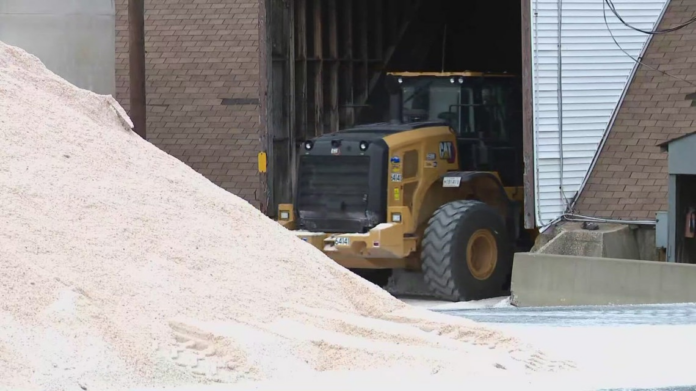Dr. Sujay Kaushal reported that some local streams contain salt levels comparable to those of the Atlantic Ocean.
COLLEGE PARK, Md. — Researchers from the University of Maryland have been studying the effects of road salt on waterways in the DMV for over two decades.
Dr. Sujay Kaushal, one of the leading scientists on the project, told WUSA9 on Friday that snow-melting treatments have contaminated local water supplies.
“We were the first to show that this was affecting a major drinking water source,” Kaushal said. “Specifically, the Baltimore drinking supply.”
Following the recent DMV snowstorm, Kaushal was back in the field, analyzing creeks to measure how long road salt remains in the water.
“When it snows, salt is applied to the roads, and we’re tracking how long it lingers in the streams,” he explained.
According to his research team, local drinking water saw its highest salt levels of the year on Friday. Some streams, Kaushal noted, had salt concentrations equivalent to the Atlantic Ocean.
“It can harm plants, amphibians, fish—you name it,” he said, adding that these high salt levels can also pose risks to human health.
Beyond just salt, the snowfall triggered the release of harmful chemical mixtures into the water. Kaushal suggested that cities could help reduce these spikes by using less rock salt near critical waterways.
Regardless of policy changes, he emphasized that action is needed, as the situation is worsening.
“When we experience a cold snap, we get heavier snowfalls. More snow means more road salt needs to be applied,” Kaushal said.




